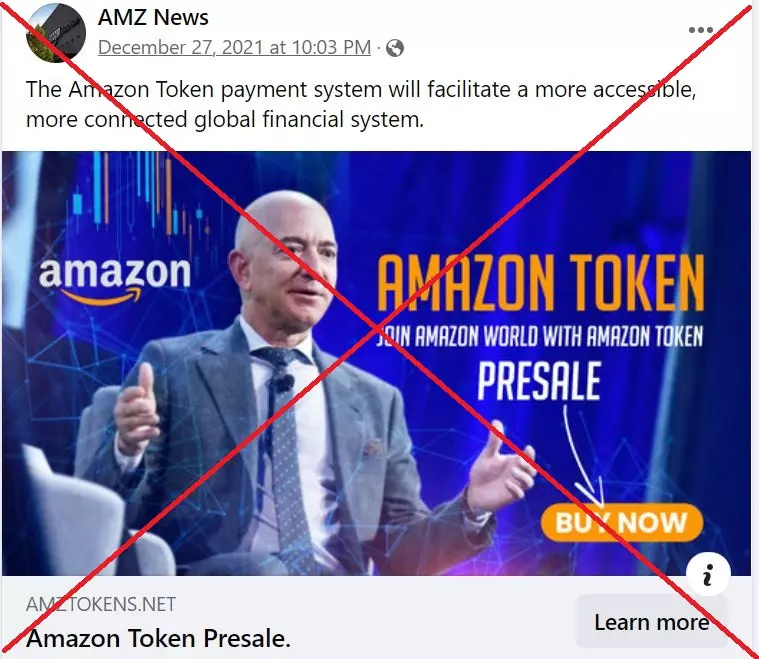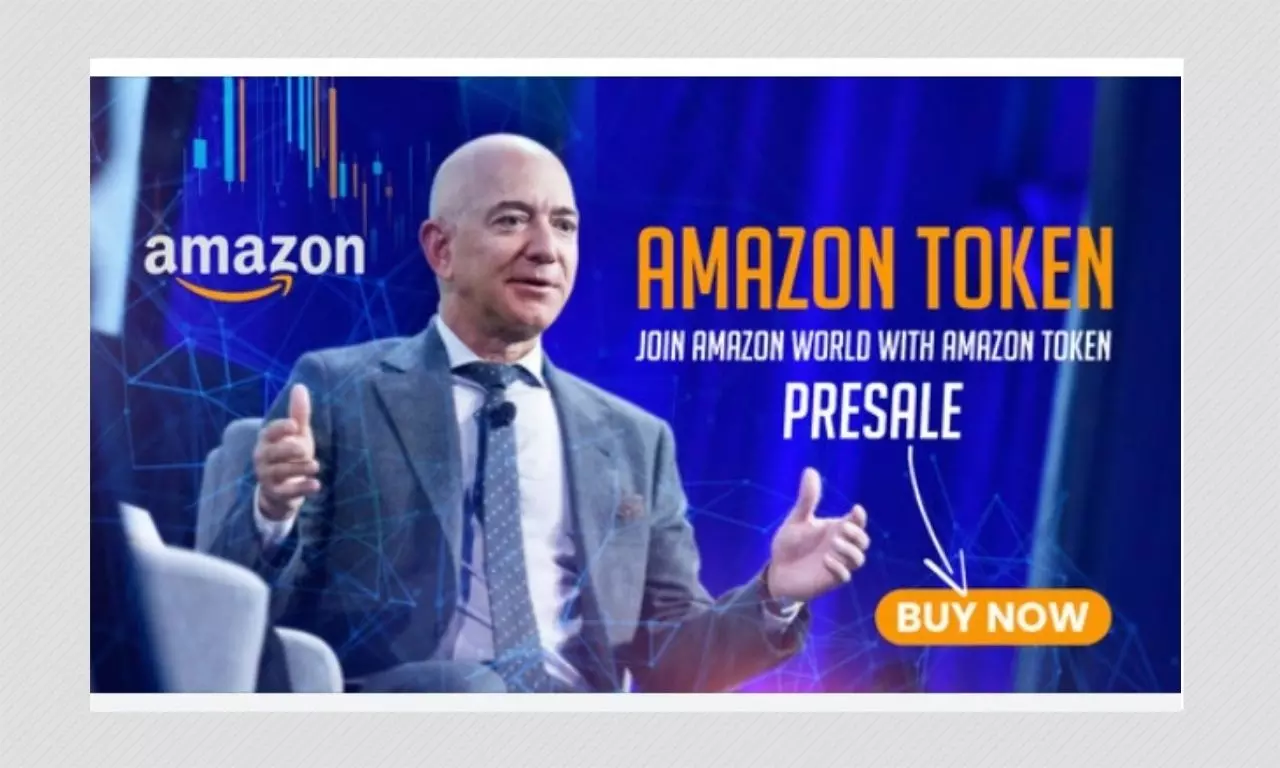Social media posts claim online retail giant Amazon has begun a “presale” of its own cryptocurrency tokens. But the company says the claim is false, and an internet security firm says the messages are part of scams aimed at stealing money and harvesting personal data.
“The Amazon Token payment system will facilitate a more accessible, more connected global financial system,” said a Facebook post from December 27, 2021 that has since been removed.
A similar post on Facebook with a photo of Amazon founder Jeff Bezos linked to the purported “official Amazon Token” site and stated: “The ‘Amazon Token’ Presale is Started.”
Some users clicking on links received a warning from their browser about a potentially malicious site. Others may see a site that contains genuine-looking Amazon logos and offers free Amazon Prime memberships for purchasers.

Amazon told AFP on January 3, 2022 that it has no cryptocurrency token and that claims to the contrary are part of a scam.
“We take any attempts to misuse our brand seriously,” a company spokesperson said. “We maintain a site to assist customers in identifying phishing attempts, including fake webpages. Amazon investigates these complaints and uses them to protect customers and hold the bad actors accountable.”
The internet security firm Avast has noted a proliferation of scams seeking to lure consumers to a so-called Amazon Token.

“We have found that these new scams are very effective, yielding over USD $100,000,” said a December 14, 2021 blog post by Avast. “Over 300 Avast users have been protected from the scam in the past week.
“These offers are propagating through malicious advertisements that imitate legitimate news sites and rely on rumors that have been around since July 2021 that Amazon will be offering Tokens for sale.”
Avast said the scheme appeared to be an effort to swindle people out of other cryptocurrencies and potentially steal personal information for malicious purposes.
“If the user attempts to purchase the Token, they have to create an account, then ‘purchase’ the Token with other cryptocurrencies, such as Bitcoin, Ethereum, LiteCoin, and others,” Avast said. “Creating an account could potentially give the attackers an email password combination that could be used in other attacks.”
The fraudulent posts have appeared in more than a dozen countries, according to Avast, and come amid growing interest in bitcoin and other cryptocurrencies, which have seen wild swings that can deliver massive gains or losses.
Facebook has been involved in an effort to launch a global digital coin known as Diem; Amazon has not indicated any participation in a new cryptocurrency.
In July 2021, Amazon indicated it was studying how it might use cryptocurrency but had no specific plans, in response to a report that it could begin accepting cryptocurrency payments.
(Except for the headline, this story has not been edited by BOOM staff and is published from a syndicated feed.)


